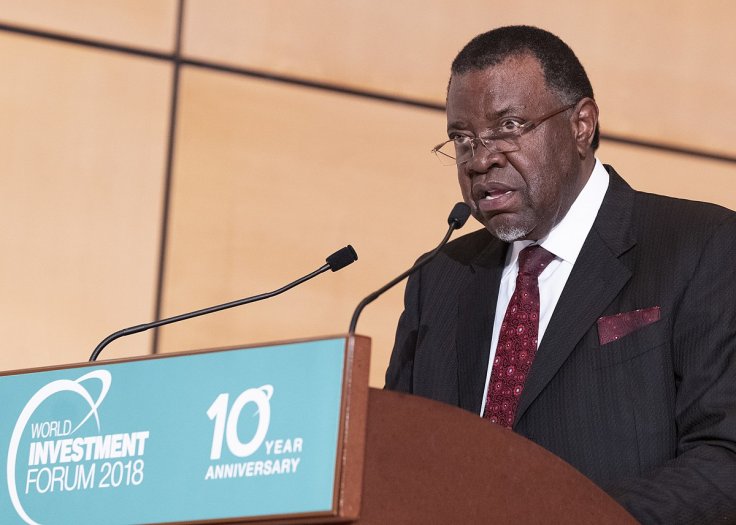Namibia's incumbent president, Hage Geingob, secured a second term, after receiving 56.3 per cent of the votes in the recently held presidential polls, announced the Electoral Commission of Namibia (ECN) on Saturday. He defeated Panduleni Itula, an independent candidate, who received 29.4 per cent of the votes.
Bernadus Swartbooi, a candidate for the Landless Workers' Movement, secured 2.7 per cent of the votes, while the country's first female presidential candidate collected only 1.5 per cent.
After receiving the mandate on Saturday, Geinob took to Twitter to thank his countrymen. "I wish to thank Namibians for re-electing me as their president. I am humbled and commit to serve the Namibian nation with more passion and utmost dedication, to bring tangible improvements in the lives of our citizens. I have heard you," he wrote.
However, Geinob's victory was not as resounding as the one in the 2014 elections where he won 87 per cent of the popular vote.
In the legislative elections that were held along with the presidential elections on Wednesday, Geinob's party, the South West African People's Organisation (SWAPO), won 63 of the 96 seats. The party's share in the legislature has fallen from the 77 seats it had obtained in 2014
Not a smooth sailing

The SWAPO has been a dominant force in Namibian politics since the nation's independence from South Africa in 1990. Nevertheless, the predictions for the party were far from optimistic and the Geingnob's path to reasserting his hold over the presidency was touted be a difficult one.
Despite not facing notable rivals, Geingob's journey has not been an easy one as the elections were clouded by economic hardships and corruption scandals. Since 2016, the country has been in recession, owing to the slump in the prices of raw materials, especially minerals, that the country has vast reserves of. Adding to the economic hardships is the country's unemployment rate that stands at 34 per cent.
Also, in November, two ministers resigned just days before the elections after graft allegations were levelled against them. They were accused of receiving bribes amounting to millions of dollars in bribe from Samherji, an Iceland fishing company.
(With agency inputs)









